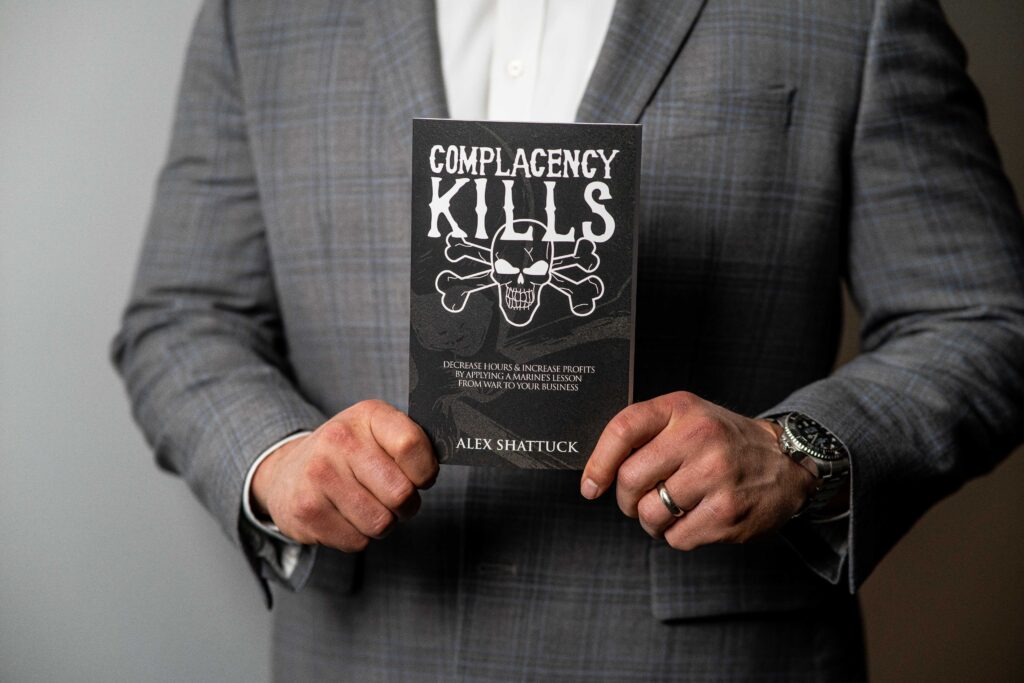Recruiting Hack: Lower Your Standards - Increase Your Income
By: Alex Shattuck

Should the market dictate your hiring decisions?
Short answer: Yes.
Recruiting has been a real struggle for most small-business owners… As tough as it has been – this isn’t new. I don’t recall a time where recruiting, and team, were not brought up in conversation when sharing struggles we face in our businesses. The reasons for the struggle change but the struggle has been, and is still, very real.
We can’t dictate, or impact, what the job market does. We simply need to react to it as it changes.
Regardless of when you’re reading this – we’re probably in a tough job market. Let’s look a little closer at your business and industry and ask a question. What part is going well? How can you capitalize on that? Shift your focus from the job market you can’t control to what’s going well so you can leverage that sweet spot before the window closes.
I’m going to use my insurance business as an example here. Even though the job market has been challenging; our rates are more competitive than I’ve ever seen. When I pay for an internet auto insurance lead today my team closes them at THREE TIMES the rate they were two years ago. Is my team better today than they were two years ago? Yes. How much of the 3x increase in close ratio is because of team, and not price competitiveness? No clue. For the sake of simplicity I’m going to roll with the idea that the 3x bump is because of our shift in competitiveness.
Why is this relevant?
***Hack Alert***
I don’t need to recruit as talented of an individual today as I needed to recruit two years ago. I can lower my standards some and get the same, if not better, results.
I’ll be the first to admit that sounds awful. Stay with me. It’s simple math.
In theory, I can hire someone 1/3 as good as what I needed two years ago to give me the same return on my marketing dollars. Two years ago I needed to be really selective. If I didn’t find the ideal fit they would fail fast, and fail miserably.
Regardless of the industry, if you aren’t priced competitively, or if your product isn’t in high demand- you need a very talented individual in the sales seat to find consistent success. These are the times where you send them through every assessment known to man. If they can’t sell coming through the door – they’ll fail before you have time to tune them up.
If you are priced super competitively, or your product is in high demand, YOU DON’T NEED TO BE SO DARN PICKY! You are losing money by being so selective. If you need three on your sales team and you only have two- you are losing money every single day. Maybe you shouldn’t settle and hire someone that is 1/3 as good as what you looked for two years ago, but I’d recommend seriously considering lowering your standards to some extent. This will get someone producing and growing your business faster.
If you’re in a competitive situation- this will buy you time to get that sales team member better at his craft. The early wins achieved from price competitiveness, or demand, will build confidence in that new hire.
That confidence will lead to more activity.
More activity will lead to more experience.
More experience will lead to a more skilled sales person.
When the market competitiveness shifts, and the wind is no longer to your back – that hire you lowered your standards for may very well be the player that you had been looking for the whole time. You would have capitalized on the market you were in, and will be better positioned, in regards to capacity, to attack the adversity in the market shift that is bound to come.
But what if he’s not?
What if he doesn’t evolve into the player that you had been holding out for? Scott Grates, President and CEO of Agency Optimization did a great job at playing devil’s advocate for me on this one. I ran this by him and asked him to challenge me here because I knew what I was saying did not necessarily align with what I’ve heard him say in regards to recruiting and hiring.
What I took from our conversation is that we need to be prepared. What if this scenario I described doesn’t come to fruition for whom we hired when the wind was to our backs. When lowering standards on the front side, even though we will benefit from that shot in the arm of activity and production, some of those hires won’t necessarily turn out to be that A (or B) player when we find ourselves in a more challenging market.
This doesn’t mean we don’t lower our standards when we see that window to capitalize on our market, but what it does mean is that we need to be able, and willing, to be quick to fire, to match our quickness to hire. If we fail to do so we will lose all of the money we made during those good times- and then some.

Get a FREE digital copy of Alex's book today!
You probably started your business with dreams of having a high income and freedom. You may have found that you sacrificed one, if not both, of these objectives. In this book Alex masterfully applies the brutal lessons he learned in Iraq to business here at home.
